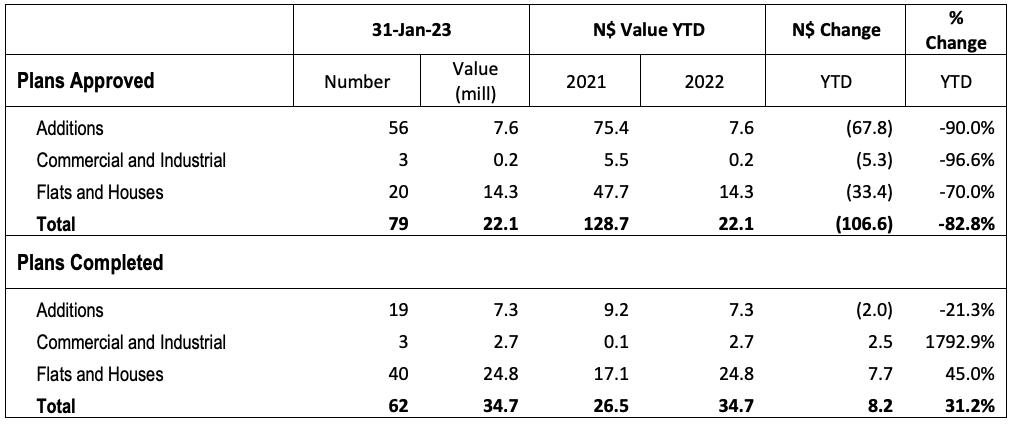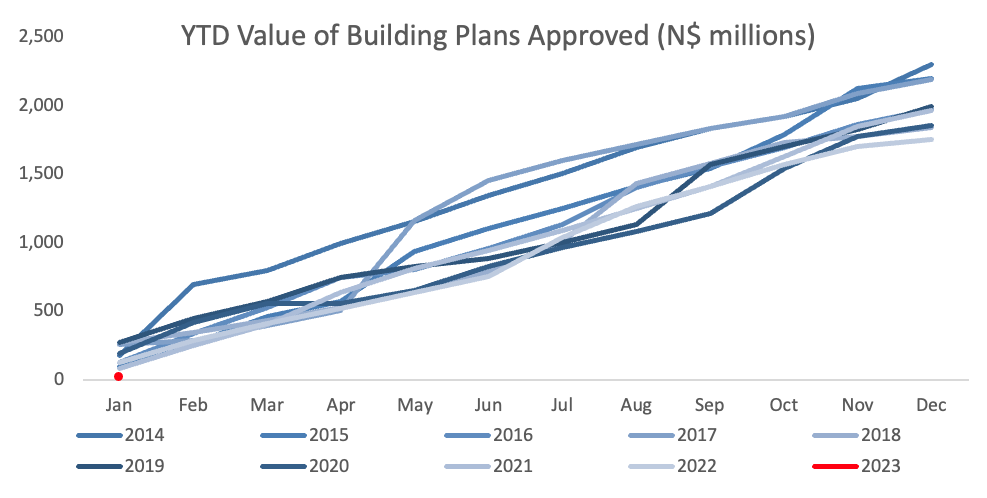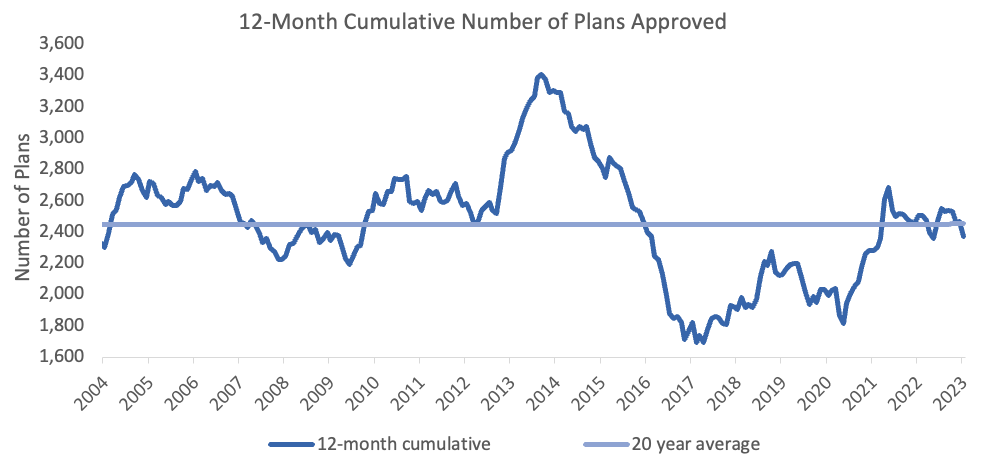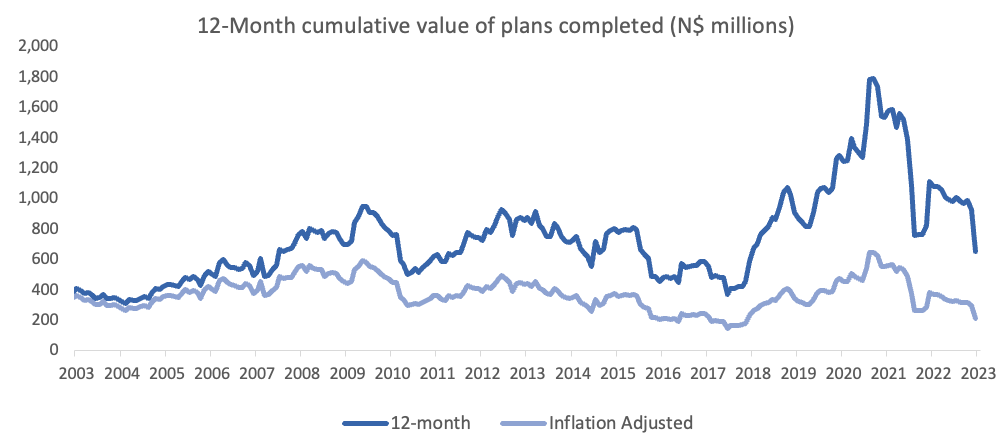
A total of 79 building plans were approved by the City of Windhoek in January, a 28.2% m/m decline from the 110 approved in December. Bar April 2020, which recorded no approvals due to the Covid-19 lockdowns, January’s total number of approvals was the lowest since February 2017. In monetary terms, the approvals were valued at N$22.09 million, the lowest since April 2000, excluding April 2020. On a twelve-month cumulative basis, 2,370 building plans worth approximately N$1.65 billion were approved, representing a decline over the prior 12-month period both in number and value terms of 5.4% y/y and 17.9% y/y, respectively. 62 building plans valued at N$34.7 million were completed during the month.

In number terms, additions to properties made up the largest portion of approvals. The month of January saw 56 additions to properties worth N$7.6 million getting the nod. A decline of 32.5% m/m in number terms and 63.9% m/m in value terms. In comparison to January 2022, the number of additions to properties in January of this year has decreased by 43.4%, with a corresponding decrease in value of 90.0%. On a 12-month cumulative basis, the number of additions to properties has been hovering around the 1,600 mark since 2018. 19 Additions worth N$7.3 million were completed during the month.

Only 20 new residential units valued at N$14.3 million were approved in January, which is four fewer than in December, and represents a decline of 73.0% y/y in number of units approved and a 70.0% y/y drop in value terms. To put into perspective just how low January’s new residential approvals were, in 2020, when the Covid-19 lockdowns hampered construction activity, 53 new residential units worth N$68.6 million were approved on average each month. That being said, January is not necessarily a proxy for the annual residential approval numbers, as recent historical data suggests, and we may very well still see an improvement in these numbers going forward. A total of 40 residential units worth N$24.8 million were completed during the month.

3 new commercial and industrial units, worth just N$190,000, were approved in January. This compares to the same number of plans valued at N$4.00 million in December and N$5.53 million in January 2022. On average over the last 20 years, 5 commercial units valued at N$26.7 million were approved in the first month of the year. On a rolling 12-month basis, the number of approvals for this category rose to 57 units worth N$157.5 million as at January, compared to the 39 approved units worth N$169.9 million over the corresponding period a year ago. 3 Commercial units valued at N$2.65 million were completed in January.

In terms of number of building plan approvals in the capital, 2023 is off to the slowest start since 1990, while the value of the total approvals was the lowest for the first month of the year since 2000, even before adjusting for inflation. Building plans approved is a leading indicator of economic activity in the country and the above data implies that certain sectors of the Namibian economy are still showing signs of hardship.
Notably, the value of new walls approved during the month (which we exclude from our data) was more than five times the value of new commercial and industrial building plans approved. This shows that most businesses do not have immediate plans to expand their existing operations.
There is a possibility that construction activity may increase during the year. However, considering the overall trend of the 12-month cumulative value of approvals over the past couple of years, as illustrated in the graph above, any growth, if at all, will be from an already low base that has been on a declining trend.

